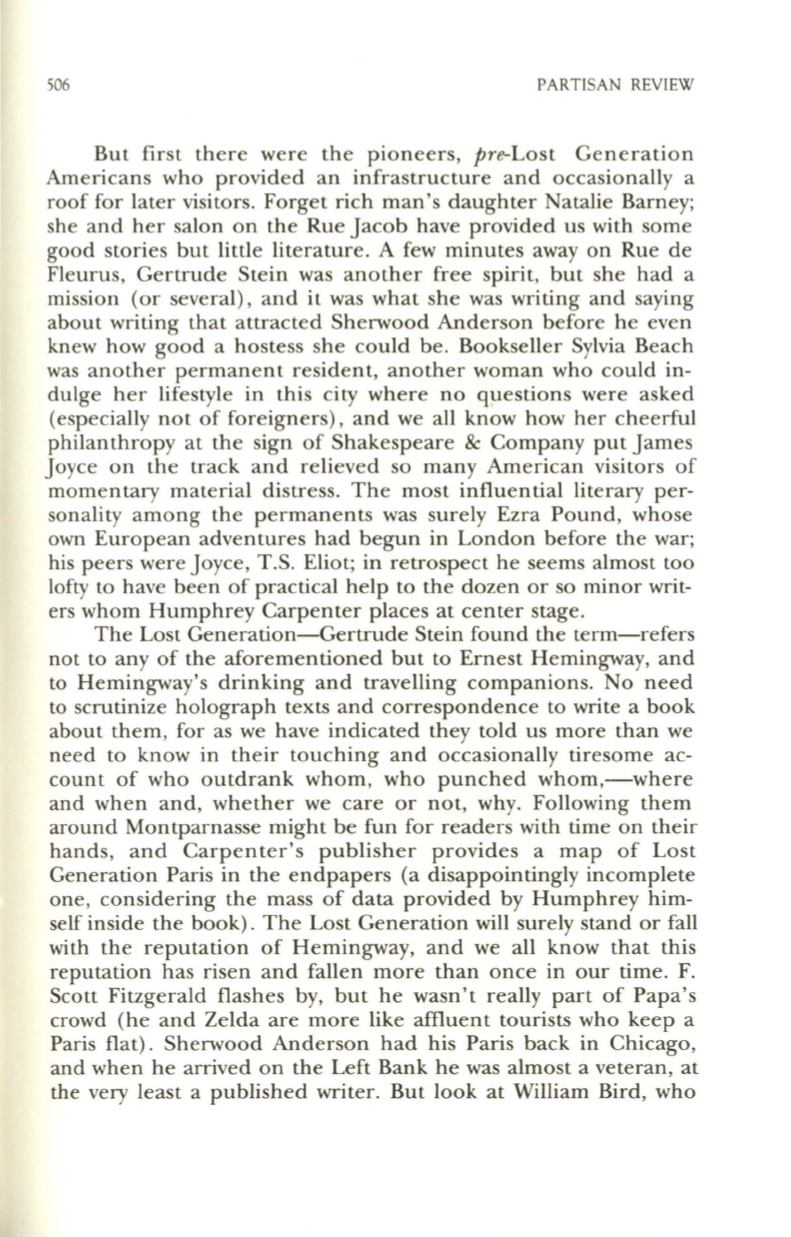
506
PARTISAN REVIEW
But first there were the pioneers,
pre-Lost
Generation
Americans who provided an infrastructure and occasionally a
roof for later visitors. Forget rich man's daughter Natalie Barney;
she and her salon on the Rue Jacob have provided us with some
good stories but little literature. A few minutes away on Rue de
Fleurus, Gertrude Stein was another free spirit, but she had a
mission (or several), and it was what she was writing and saying
about writing that attracted Sherwood Anderson before he even
knew how good a hostess she could be. Bookseller Sylvia Beach
was another permanent resident, another woman who could in–
dulge her lifestyle in this city where no questions were asked
(especially not of foreigners), and we all know how her cheerful
philanthropy at the sign of Shakespeare
&
Company put James
Joyce on the track and relieved so many American visitors of
momentary material distress. The most influential literary per–
sonality among the permanents was surely Ezra Pound, whose
own European adventures had begun in London before the war;
his peers were Joyce, T.S. Eliot; in retrospect he seems almost too
lofty to have been of practical help to the dozen or so minor writ–
ers whom Humphrey Carpenter places at center stage.
The Lost Generation-Gertrude Stein found the term-refers
not to any of the aforementioned but to Ernest Hemingway, and
to Hemingway's drinking and travelling companions. No need
to scrutinize holograph texts and correspondence to write a book
about them, for as we have indicated they told us more than we
need to know in their touching and occasionally tiresome ac–
count of who outdrank whom, who punched whom,-where
and when and, whether we care or not, why. Following them
around Montparnasse might be fun for readers with time on their
hands, and Carpenter's publisher provides a map of Lost
Generation Paris in the endpapers (a disappointingly incomplete
one, considering the mass of data provided by Humphrey him–
self inside the book). The Lost Generation will surely stand or fall
with the reputation of Hemingway, and we all know that this
reputation has risen and fallen more than once in our time. F.
Scott Fitzgerald flashes by, but he wasn't really part of Papa's
crowd (he and Zelda are more like affluent tourists who keep a
Paris flat). Sherwood Anderson had his Paris back in Chicago,
and when he arrived on the Left Bank he was almost a veteran, at
the very least a published writer. But look at William Bird, who


